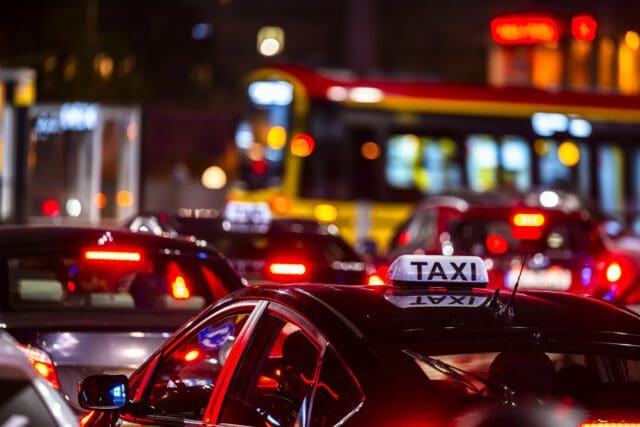Safety is the most important part of the taxi industry and making passengers feel safe is as important as ensuring vehicles are roadworthy, well maintained and drivers are fully licensed.
Campaigns
In the build-up to the festive period, licensing authorities across the country launched campaigns to remind people about taxi safety. This included warnings to only use licensed vehicles and make sure cabs hailed in the street or at a rank where public hire taxis and private hire vehicles had to be booked in advance. PHV drivers who pick up passengers without a booking not only break licensing regulations, they also invalidate their taxi insurance and would not be covered in the event of a crash.
Once the festivities are over, it is easy for people to go back to their normal routines and let their guard slip. But for taxi and PHV drivers, making passengers feel safe is something they have to do all year round.
And one taxi boss who asked passengers how they felt was shocked to discover that 300 of them had been harassed or assaulted by drivers.
Safety
Hoping to restore faith in the trade after a number of incidents, taxi boss Shaz Malik told the BBC that he was shocked by the response.
He said it was a “wake-up call” that “couldn’t be ignored” after Asmal, 35, was jailed for 17 years for four sex attacks on the women.
Joanne Westwood, a professor of social work education at the university, said evidence suggested taxi customers were in a particularly vulnerable position.
“If somebody was harassing you or making you feel uncomfortable in the street, you would just get up and you just walk away. You can’t do that in a taxi, in a moving vehicle.
“What I expect is that there will be incidences and experiences that people talk about that they might not have talked about before.”
Chorley Taxi Association director Mr Malik said it is important customers who had any evidence of problems with genuine taxi drivers should report them to the police and council licensing teams.
Protecting passengers
Much of the advice given to passengers in the festive period involved checking that the driver is genuine and fully licensed. As part of one campaign, taxi and PHV drivers in Rugby were reminded to have their photo ID licence at all times to show to passengers upon request.
And in Bolton, the town’s annual taxi marshalling scheme helped ensure vulnerable passengers got into licensed taxis and reduce illegal pickups. It also helps stop anti-social behaviour towards drivers, especially if people have had too much to drink.
In East Riding, Yorkshire Council also introduced taxi marshals as well as CCTV and dash-cams in all vehicles to protect both passengers and drivers.
Taxi and PHV drivers are on the front line and, along with hotel and bar staff, are being asked to help protect children from exploitation and abuse. Police in Nottingham have joined the nationwide initiative which encourages frontline staff to “follow their instincts and report personal interactions that look or feel wrong”.
Taxi drivers are being trained to spot classic warning signs of abuse as they may be asked to transport young people who are being abused.
All of these elements are aimed at keeping passengers safe and maintaining the highest standards in the trade. It is also vital that passengers are made to feel safe and can be reassured that the taxi or PHV they are getting into is genuine and drivers’ identities can be easily verified through official ID or confirmation from a taxi operator.




